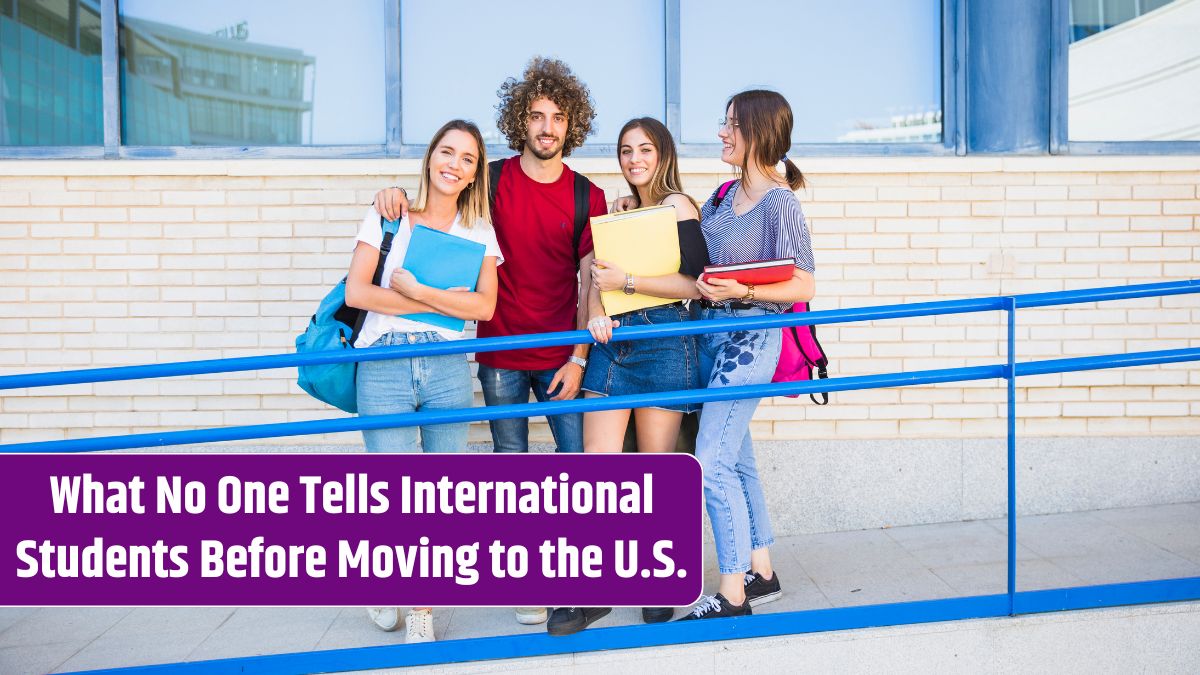Studying in the U.S. is a dream for many students around the world. World-class universities, diverse campuses, and endless opportunities—what’s not to love? But while the brochures make it look perfect, there are a few things no one really talks about.
So if you’re packing your bags (or thinking about it), here’s what international students really need to know before landing in the U.S.
Table of Contents
Culture
Culture shock is real. It hits differently for everyone, but don’t underestimate it. From casual greetings like “What’s up?” (even from strangers) to the obsession with iced coffee—even in winter—American culture can feel like a different planet at first.
You might feel super independent one day and incredibly homesick the next. That’s normal. It’s all part of adjusting. The best way to handle it? Keep an open mind, ask questions, and don’t be afraid to laugh at the confusing moments.
Academics
University life in the U.S. isn’t just about attending lectures and passing exams. Participation matters—a lot. Professors expect you to speak up in class, ask questions, and engage with the material. Some even grade you on it.
Also, there’s a strong focus on writing and critical thinking. You might come from a system that relies more on memorization, so be ready for a shift. Don’t worry—there are writing centers, tutoring services, and tons of support if you need help.
Finances
Here’s a big one no one emphasizes enough: unexpected costs.
Yes, tuition is expensive, but so is everything else—textbooks, healthcare, housing, food, transportation, and even phone plans.
Here’s a sample of monthly living costs:
| Expense | Estimated Cost (USD) |
|---|---|
| Rent (shared) | $700–$1,200 |
| Groceries | $200–$400 |
| Phone & Wi-Fi | $60–$100 |
| Transport | $50–$120 |
| Miscellaneous | $100–$300 |
Budget carefully. And if your visa allows it, consider applying for on-campus jobs to earn extra income.
Loneliness
Moving thousands of miles away from home can be isolating. Making friends isn’t always easy, especially when people already have their social circles.
But you’re not alone. Thousands of other international students feel the same way. The key? Get involved. Join clubs, student orgs, cultural groups—whatever feels right.
American students might not always make the first move, but they’re often open and friendly once you do. So don’t be shy. Start with a smile and a “Hey, where are you from?”
Rules
The U.S. has strict immigration laws, and even small mistakes can cause big problems. Know your visa status, work limits, and deadlines for documents like I-20 forms or OPT applications.
Here’s a quick tip: never assume. Ask your university’s international student office when in doubt. That’s what they’re there for.
And yes, always carry some form of ID. You might need it more often than you think.
Food
American food is… different. There’s a lot of fast food, massive portion sizes, and ingredients you may not recognize. You’ll miss your home food more than you expect.
But don’t worry—you’ll eventually find restaurants or grocery stores with the flavors you crave. Or better yet, learn to cook! It’s a great way to save money and feel at home.
Weather
Depending on where you move, the weather can be a major shock. If you’re headed to the Midwest or Northeast, brace yourself for snow, wind, and temperatures that dip below freezing.
Pro tip: don’t buy winter clothes until you arrive. Local stores will have what you need—and you’ll avoid packing a suitcase full of the wrong stuff.
Moving to the U.S. is a big step, and while it’s filled with exciting opportunities, it comes with real challenges too. Being prepared for the unexpected—and staying open to learning—will help you navigate your journey with confidence and clarity.
FAQs
Do U.S. professors expect class participation?
Yes, speaking up in class often counts toward your grade.
Can international students work in the U.S.?
Yes, but usually only on campus with strict limits.
Is it hard to make friends as an international student?
It can be, but joining clubs and events really helps.
Are living costs high in the U.S.?
Yes. Rent, food, and transport can add up quickly.
How can I get help with visa questions?
Ask your school’s international student office directly.





















